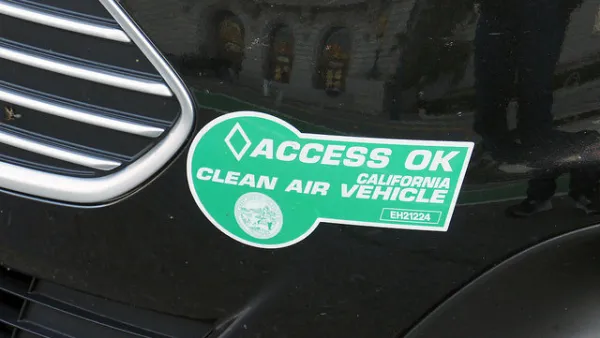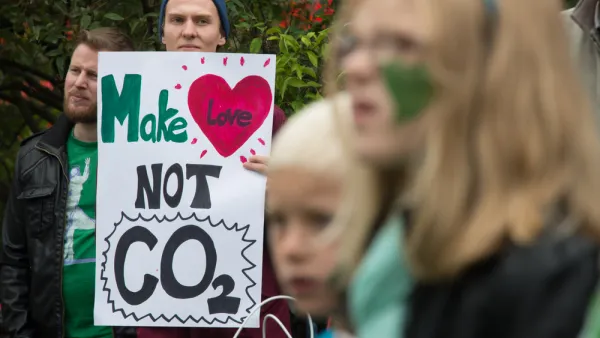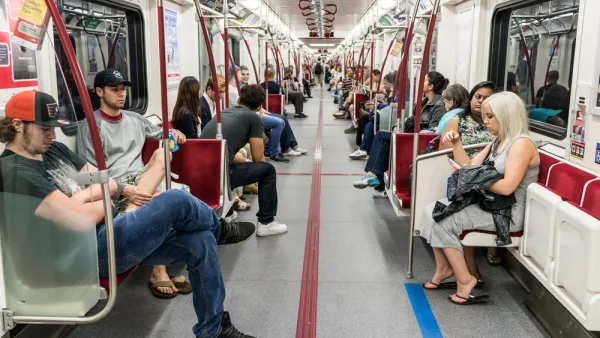Irvin Dawid discovered Planetizen when a classmate in an urban planning lab at San Jose State University shared it with him in 2003. When he left San Jose State that year, he took with him an interest in Planetizen, if not the master's degree in urban & regional planning.
As a long-time environmental activist, he formed the Sustainable Land Use committee for his local Sierra Club chapter and served six years on the Bay Area Air Quality Management District’s Advisory Council from 2002-2008. He maintains his interest in air quality by representing Sierra Club California on the Clean Air Dialogue, a working group of the Calif. Environmental Dialog representing business, regulatory and public health/environmental interests.
Major interests include transportation funding, e.g., gas taxes, vehicle miles traveled (VMT) fees, road tolls and energy subsidies that lead to unlevel playing fields for more sustainable choices.
He hails from Queens (Bayside) and Long Island (Great Neck); received an AAS in Fisheries & Wildlife Technology from SUNY Cobleskill and a B.S. from what is now Excelsior College.
After residing for three years on California’s North Coast, he’s lived on the San Francisco Peninsula since 1983, including 24 years in Palo Alto. Home is now near downtown Burlingame, a short bike-ride to the Caltrain station.
He’s been car-free since driving his 1972 Dodge Tradesman maxi-van, his means to exit Long Island in 1979, to the junkyard in 1988.
Major forms of transportation: A 1991 'citybike' and monthly Caltrain pass, zone 2-2. "It's no LIRR, but it may be the most bike friendly train in America."
Irvin can be reached at [email protected]

Compromise Reached on $1.4 Billion in California Cap-and-Trade Proceeds
An earlier announcement awarded almost $400 million to transit agencies, but left a larger chunk of these funds still unsettled. On Wednesday, leaders agreed on a $900 million expenditure plan to cut emissions and address social concerns.

All Eyes on California's New Emissions Reductions Requirement
As difficult as it was for the legislature to pass SB 32 on Aug. 24, reducing emissions 40 percent below 1990 levels by 2030 will prove far more challenging. Brad Plumer, senior editor of Vox, explains the bill and what it will take to meet the goal.

Brooklyn Housing Supply Begins to Match Demand
About 6,500 apartments in 19 towers within 10 square blocks on Flatbush Avenue are expected to be available within two years, but don't expect rents to plunge. Renters should look for perks like one or more months of free rent.

Toronto Commuters Like Their Open Gangway Subway Trains
The New York Times transit reporter, Emma G. Fitzsimmons, reports from Toronto to see what riders think about their 'open gangway' subway cars. By 2020, New York will receive 750 of these cars that have no doors separating the cars.
Traffic Deaths Take a Big Jump in 2016
A 9 percent increase in fatalities on the nation's highways compared to the same period in 2015 does not appear to be a result of increased driving, which jumped 3.3 percent during that period, but rather an increase in the rate of fatal crashes.

























